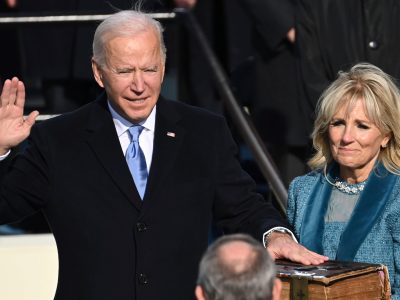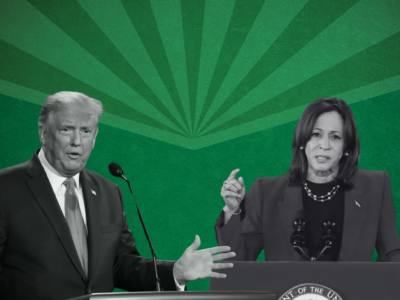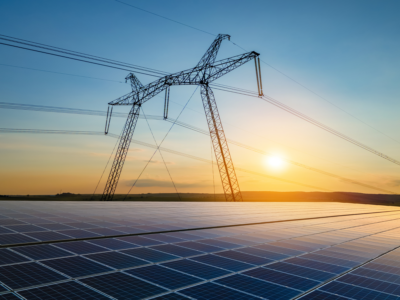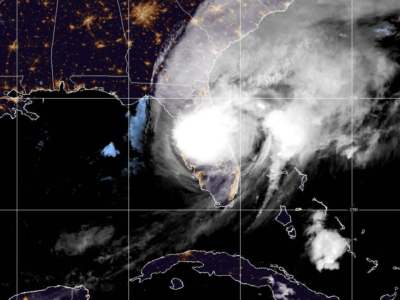Biden Administration
Deal or No Deal?
Should Congress pass EPRA?
This is the second in a series of posts on permitting reform. The first post is here. Given the provisions of the Energy Permitting Reform Act (EPRA), should Congress enact it as it stands now? Answering that question is tricky, in part because it depends both on uncertain political and administrative action, as well as …
Continue reading “Deal or No Deal?”
CONTINUE READINGShould We Do Permitting Reform?
What is at stake with the Manchin bill.
As Congress wraps up its lame duck session before the new Congress and President arrive in January, there is a lot of debate about whether to move forward on permitting reform within a quickly shrinking window of time. The basis of debate is the Energy Permitting Reform Act (EPRA) co-sponsored by Senators Manchin and Barrasso. …
Continue reading “Should We Do Permitting Reform?”
CONTINUE READINGNEPA and Loper Deference (Part II)
Guest contributor Justin Pidot outlines what losing CEQ’s NEPA authority means for interagency coordination and efficiency.
Dan provided a terrific overview of the legal issues involved in the D.C. Circuit’s recent decision holding that CEQ lacks authority to promulgate regulations and, therefore, that the regulations governing implementation of NEPA across the government for decades are ultra vires. I want to offer some additional observations focused on the potential practical implications. First, …
Continue reading “NEPA and Loper Deference (Part II)”
CONTINUE READINGWhat does the election mean for the EV transition?
Slower, less certain, and less equitable–with a new focus on local leadership
The election of Donald Trump and a Republican Congress poses a direct threat to environmental protection and climate policy across the board, including destructive agency heads, reduced clean energy funding, abandoned international agreements, and more federal judges openly hostile to science-based regulation in service of public and environmental health. It’s a bleak outlook from any …
Continue reading “What does the election mean for the EV transition?”
CONTINUE READINGA To-Do List For Biden
The clock is ticking, but there’s still time for a few important last things.
Biden has a little over two months left in office. There are some important things he can do in the meantime to protect the environment from the next administration. Here are a few of the most important efforts.
CONTINUE READINGTrump Can’t Stop the Clean Energy Transformation
The global transformation to an economy fueled by clean energy can’t be stopped. Trump could slow down U.S. progress though.
Here’s an uncontroversial proposition: if Donald Trump wins the election (a horrific thought), we will make less progress in attacking climate change than if Kamala Harris wins. His most recent remarks on climate were appalling: “They say global warming, they used to call it global warming but now they call it climate change. You know …
Continue reading “Trump Can’t Stop the Clean Energy Transformation”
CONTINUE READINGGrid Experts Weigh in on EPA’s Power Plant Emissions Rule
The U.S. Supreme Court denied an emergency stay in West Virginia v. EPA, a challenge to EPA’s rule. Our UCLA Law clinic submitted a brief on behalf of grid experts in the case at the D.C. Circuit.
Earlier this year, the U.S. Environmental Protection Agency finalized emissions standards for greenhouse gases from power plants under Clean Air Act, Section 111(d). The rule sets pollution limits for existing coal plants and some new gas plants based on carbon capture and sequestration. In West Virginia v. EPA, a spate of states and industry parties …
Continue reading “Grid Experts Weigh in on EPA’s Power Plant Emissions Rule”
CONTINUE READINGWhy is EPA “Faceless”?
People complain about faceless bureaucrats. At least in part, that could be fixed.
How many people can name the head of EPA or even know the title of that office? About 5% of the population, would be my guess. Apart from Scott Pruitt, who became famous for his $20,000 phone booth, few people outside of the field could name any previous holder of the office.
CONTINUE READINGHurricane Milton and this Climate Moment
We’re witnessing the collision of extreme weather, climate science, national news and politics. The question of “Who pays for climate disasters?” is about to become even more important.
When President Biden addressed the nation yesterday from the White House, he warned that Hurricane Milton could be one of the most destructive storms in more than a century, but he stopped short of explaining why — that climate change, fueled by our burning of fossil fuels, is making oceans warmer and storms stronger, capable …
Continue reading “Hurricane Milton and this Climate Moment”
CONTINUE READINGThe Walz-Vance Debate and Environmental Policy
After Hurricane Helene, Vance and Walz were pressed on climate change during the VP debate. Here’s everything they said on energy and the environment.
The subject of climate-fueled disasters figured prominently in the vice presidential debate. The CBS News moderators asked a question about climate change within the first few minutes, although the multi-faceted answers weren’t always factual and much of the post-debate discussion in newsrooms and spin room interviews centered on contentious yet civil exchanges on immigration and …
Continue reading “The Walz-Vance Debate and Environmental Policy”
CONTINUE READING










